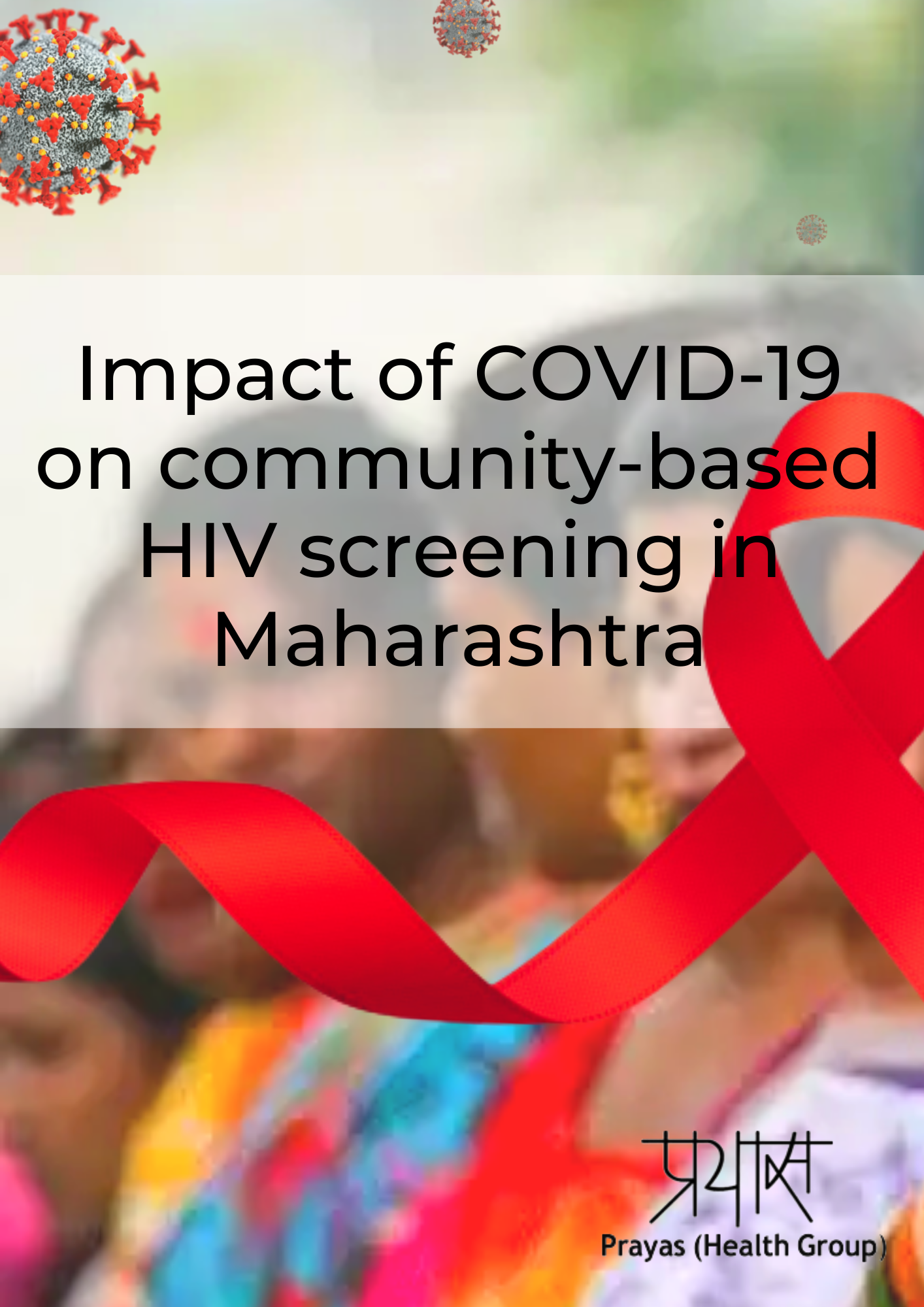The pandemic of COVID-19 had an unprecedented impact on health services in India. The ‘new norms’ of the pandemic times presented unique challenges for HIV programs and potentially impacted its services. Maharashtra has been one of the worst affected states for COVID-19 and HIV.
The present study evaluates how the pandemic impacted HIV testing services in the Targeted Intervention program and Link Worker Scheme in the state of Maharashtra and how the programs dealt with it. The TI and LWS programs focus on Female Sex workers (FSWs), Men who have sex with Men (MSM), Trans Genders (TGs), Injecting Drug Users (IDUs), Truckers, and Migrant populations. Community-Based Screening (CBS) for HIV was adopted in these programs from 2016-17 onwards to reach the unreached or hard-to-reach populations.
The report describes the uptake pattern of HIV testing during lockdown and phases of subsequent unlockdowns (compared to previous years), its district-level variation, and the role of different strategies (including community-based HIV screening) adapted by the program during the pandemic. It identifies processes and good practices that helped sustain HIV testing during the pandemic.
In the report, we also ponder upon the crucial role played by the existing community participation/engagement processes built in HIV programs, and the need to nurture these further to strengthen the outreach.


